Google vs Apple vs Samsung: Who has the best AI image generator?

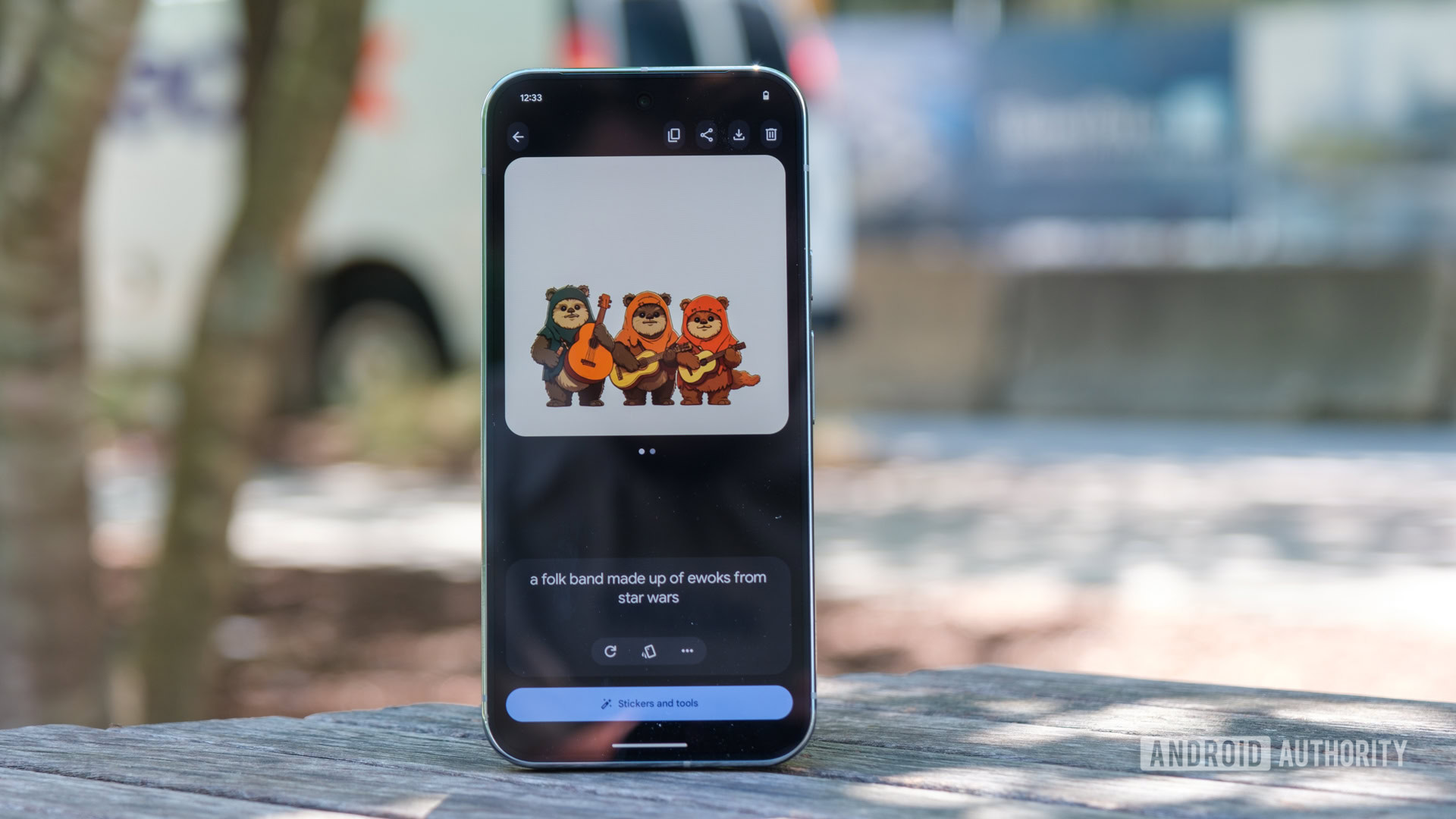
Ryan Haines / Android Authority
Despite their differences, Google, Apple, and Samsung often feel like three sides of the same weird, triangular coin. I mean, they’ve all decided on pretty much the same set of AI-powered features for their flagship devices. From tools for reading and writing to powerful photo editors, it’s like they’re sharing homework assignments but changing a few answers to not seem like they’re cheating.
One of those features they’ve decided to share is an AI-powered image generator — or at least the idea that you should be able to use AI to generate images. However, their three solutions are about as different as possible, so let’s dig into Samsung’s Portrait Studio, Google’s Pixel Studio, and Apple’s Image Playground to see which performs best.
What does Samsung’s Portrait Studio do?
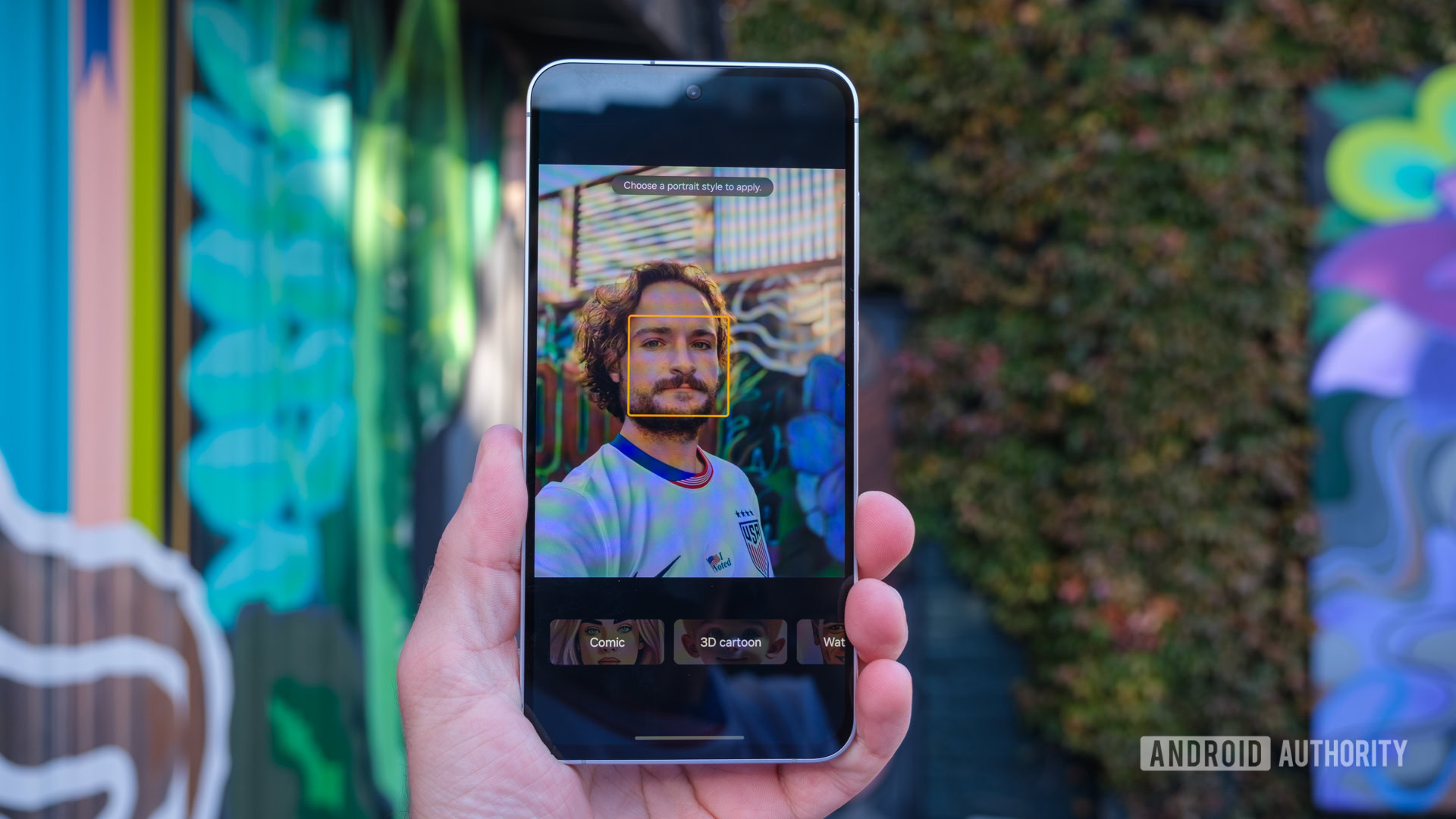
Ryan Haines / Android Authority
First, we have Samsung’s Portrait Studio, which launched just a bit ahead of Google’s creative competitor — if only by a month or two. Samsung’s image-generating solution is also the simplest of the trio, acting more like a powerful editing tool inside your image gallery than a standalone image generator. It only works with humans, works only one face at a time, and gives you four art styles to choose from.
As you might imagine, that somewhat limits what you can do with the Portrait Studio, but using it couldn’t be easier. All you have to do is open an image from Samsung’s Gallery app, tap the Photo Assist button (which is similar to Magic Editor), and select Portrait Studio to get started. Then, choose your subject and art style, and press Generate to get your result. Currently, Samsung’s art styles include 3D cartoon, comic, sketch, and watercolor — somewhat limited but very effective for human faces. And, if you’re not happy with what the Portrait Studio cooks up, you can always ask it to generate over again.
It’s not very flexible, but Samsung’s Portrait Studio is the most consistent AI image generator of the group.
But while that simplicity makes the Portrait Studio very easy to use, you can’t get much out of it. I’ve mentioned the need for a human face a few times already, only because the Portrait Studio doesn’t work for animals — an unfortunate limitation when I’d love to make AI art of my cats. The Portrait Studio also only works for one face at a time, so you can’t preserve a group selfie in a fun, animated way. You can’t hang onto original backgrounds, either — the Portrait Studio just picks a solid background color that generally matches what your subject is wearing.
Anyway, now that you have a feel for the basics of the Portrait Studio, here are a few sample images:
Samsung Portrait Studio examples
Overall, five of the six Portrait Studio results look exactly how I’d expect them to — mostly like the original subject but not quite. Samsung nailed my friend’s beard in the bottom center and accurately recreated the shape of my friend’s face in the top right corner. Surprisingly, it kept the hat that the woman in the top left was wearing, but it changed it from a Baltimore Orioles cap to a basic blue lid.
And then, there’s Ryan Reynolds. Yes, obviously, that’s him. I wanted to see how the Portrait Studio would react to a downloaded image of a celebrity, and it turns out that it doesn’t care. It seems most comfortable with pictures of celebrities, as it got every little detail just about perfectly right. Maybe it’s because there are so many other images of Ryan Reynolds on which Samsung’s model was trained, but I wasn’t expecting such an accurate likeness.
Also, I’ve noticed something else about the Portrait Studio’s work: It likes the color blue. Of the original images, I don’t think a single one of my friends (or Ryan Reynolds) was wearing blue, yet everyone has been swapped into either a blue shirt, jacket, or hat. I don’t know if the Portrait Studio chooses colors based on the background it generates, but it’s an odd trait to carry through six different creations.
How does Google’s Pixel Studio compare?
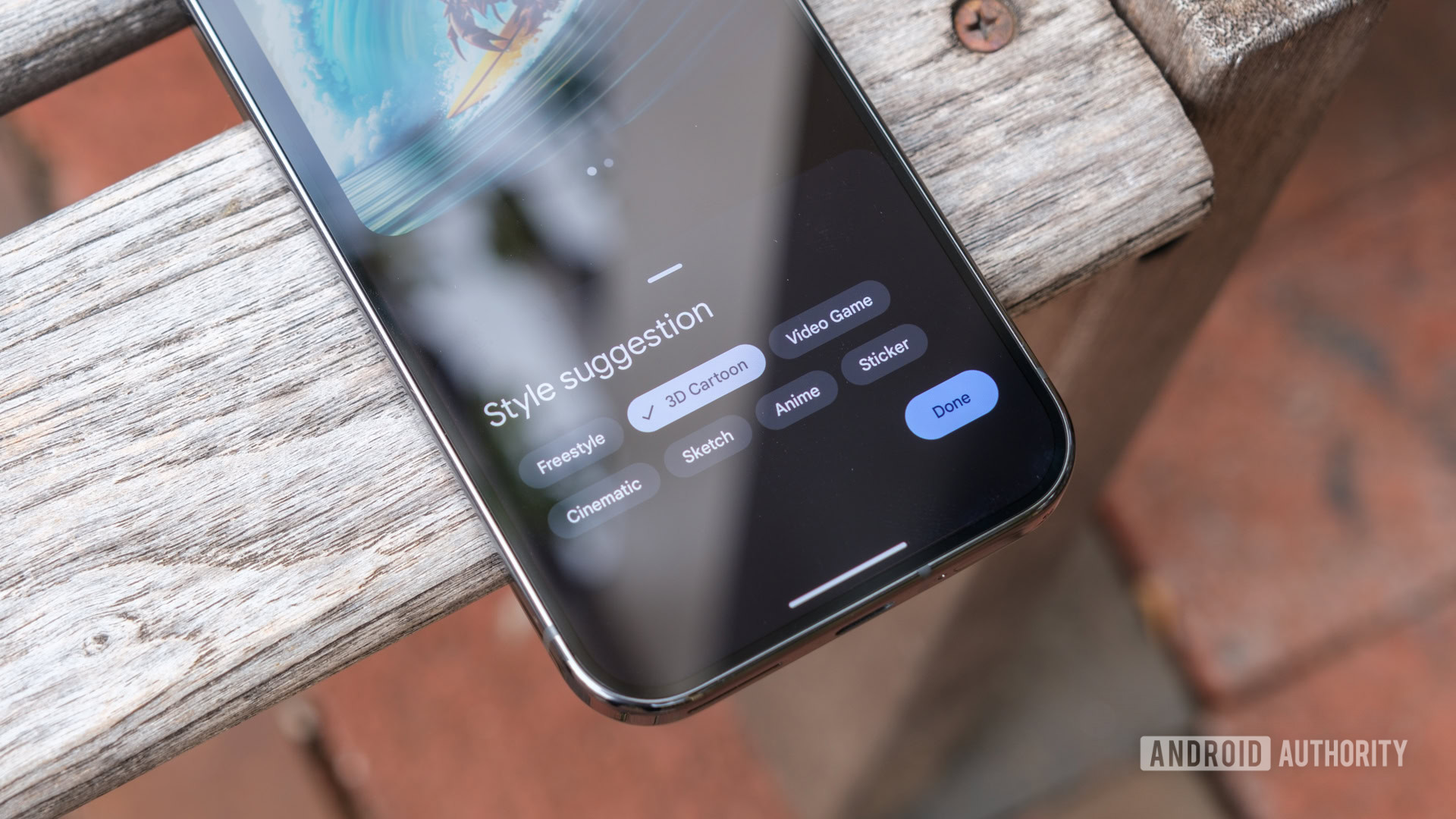
Ryan Haines / Android Authority
If the simple, straightforward Portrait Studio does not convince you, Google’s Pixel Studio might be more up your alley. It’s the opposite of Samsung’s image generator, taking a completely different approach to everything, from what you can create to how you make it.
For starters, the Gemini-powered Pixel Studio has no interest in creating images of people. If you try to ask for something as simple as a man or woman doing a basic activity like playing the guitar, the Pixel Studio will come back and inform you that support for people isn’t available yet. There’s no indication of when it will be available, either — just that it’s coming eventually. However, if you’re happy enough to live in a world without cartoon people, you’re only really limited by your imagination.
Google’s flexibility is fun, but the Pixel Studio can feel like a lawless place.
All you have to do is type out what you want to see and choose your art style, and the Pixel Studio will run your input through Google’s Imagen 3 model to spit out a matching image. It’s perfectly happy to cook up anything from wild recipe ideas to cozy interior designs, and it doesn’t seem to mind intellectual property, for better or worse. I’ve been able to create everything from a claymation version of Mr. Krabs lying on a pile of money to two Pokemon angrily debating directions on a map, with the Pixel Studio all too happy to oblige.
Also, unlike the Portrait Studio, there’s a bit of a learning curve when using Pixel Studio for the first time. As a text-based image generator, it pays to be as specific as possible when describing what you want to see. Unless you describe your subject doing a particular action, like “a pygmy hippo playing an electric guitar on top of a convertible,” Imagen 3 will simply put your subject in the center of your frame. It seems to struggle with specific names now and then, too — when I asked for Moo Deng in the prompt above, the Pixel Studio seemed to think I wanted a panda rather than a small hippo.
With that explained, let’s get to some images.
Google Pixel Studio samples
As promised, intellectual property is on the table with Google’s Pixel Studio. Sometimes, it even makes connections without my asking — like in the sticker of an eagle scoring a touchdown. I didn’t ask for a specific eagle, yet the Pixel Studio chose a bald eagle wearing specifically Philadelphia Eagles gear — even if the logo itself is a little wonky.
Some of the Pixel Studio’s other creations, like the ones of Mr. Krabs and Charmander and Squirtle, dip even closer to infringement. There’s no question who’s depicted in either image, with the two starter Pokemon coming out picture-perfect. Other creations, like the one of a tuxedo-pattern cat wearing a tuxedo, are a bit more fun, and it’s clear that Google has had quite some time to train its Imagen 3 model since there are no artifacts or odd details in most of the results.
Though, again, you’ll find yourself slightly limited by the lack of human support. If I asked for an image of an eagle scoring a touchdown over a cowboy (take that, Jerry Jones), the Pixel Studio reminds me that the ability to generate humans isn’t currently available.
Does Apple’s Image Playground bring anything new?
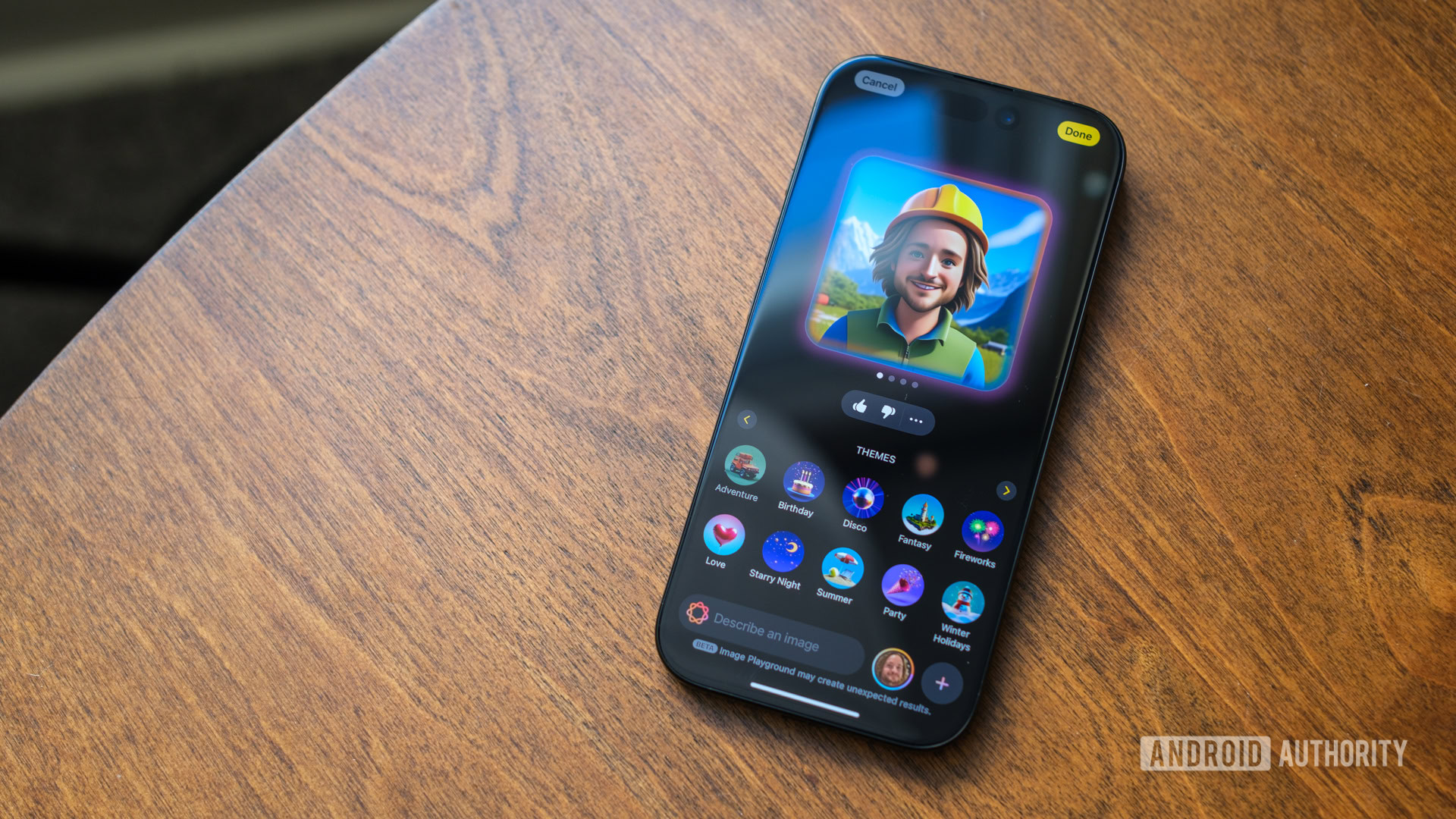
Ryan Haines / Android Authority
Finally, we have the new kid in town: Apple’s Image Playground. It might have been the last one to the party, but it came dressed to impress on my iPhone 16 Pro. More specifically, the Image Playground is like the best of Samsung combined with the best of Google but refined in a decidedly Apple-like way.
Like the Pixel Studio, Apple’s image generator lives in a standalone app, but it brings more than a wide-open text box of imagination to the table. It pairs suggested themes, costumes, and locations with familiar faces pulled from your Photos library, then adds a text box at the bottom for your more specific requests. That said, the current state of Apple’s on-device models is more limited than what Google will give you with Imagen 3, as the Image Playground has no interest in bringing intellectual property to the table. While I’ve been able to ask it for things like a goblin or bigfoot, the Image Playground immediately stops any use of intellectual property — a good sign for the overall safety of Apple Intelligence when compared to Gemini.
Apple’s Image Playground offers the best of both worlds, but needs a little polish.
Of course, copying intellectual property doesn’t seem like the area where the Image Playground would shine. Like Samsung, it tends to put your subject front and center, only animating from the shoulders up on a human subject. Thankfully, it gives you a full-body animation for fantasy creatures like goblins and bigfoot, making the Image Playground at least a bit of fun. However, it doesn’t seem like you can put too much action into your creations, as all three of my non-human subjects below seem to be standing in place.
Where the Image Playground leaves both of its competitors in the dust is when you start to use pictures of your friends. Apple’s image generator is eerily accurate when making cartoon versions of your friends, which you can then put into different costumes and against different backgrounds in a way that goes much further than the Portrait Studio. Right now, though, it’s very apparent that the Image Playground is still in beta, as things like eyes and teeth can get slightly creepy.
Now, let’s get to some sample images.
Apple Image Playground samples
As I said, Apple’s Image Playground is still in beta testing at this stage of the Apple Intelligence rollout. It’s spent the least time in users’ hands, and it shows. Whereas the Pixel Studio and Portrait Studio have largely ironed out the issues that crop up around eyes and teeth — mainly looking lifeless and fake — the Image Playground just isn’t there yet. Things like the left pupil on the ogre and the glasses on the astronaut to the right seem unfinished as if the model knew what it wanted to make but wasn’t sure how to make it.
Also, Apple’s image generator currently struggles a bit with the prompts themselves. For example, I asked for an alpaca in a recliner knitting a sweater, not wearing one. The ogre is also meant to be in front of a tree-shaped house, not seemingly wearing his treehouse on his back. That said, all three human subjects look pretty close to their original images, including giving my friend in the top center her original hair despite her reference image wearing a swim cap.
Which AI-powered image generator is most impressive?
0 votes
Portrait Studio vs Pixel Studio vs Image Playground: Which one is best?
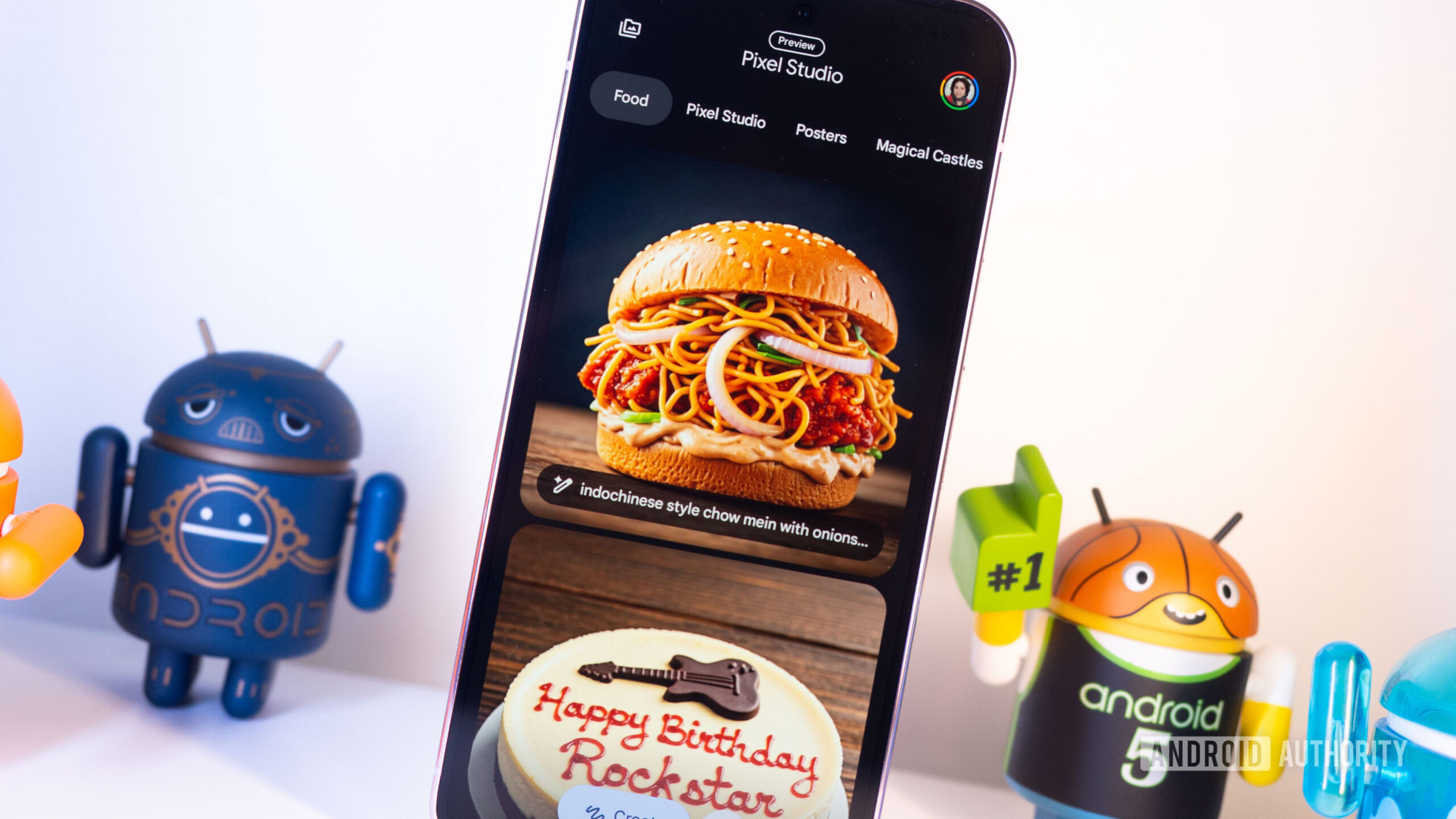
Rita El Khoury / Android Authority
As always, it’s time to decide — which AI-powered image generator is right for you. Well, the answer depends. Regarding image-generating quality, I’d have to lean towards Google’s Pixel Studio. The Imagen 3 model is simply the most refined of the bunch, handing in the most accurate-looking images of non-human subjects across the board. It doesn’t shy away from most challenges, dipping into intellectual property with a surprising amount of detail when asked. Google’s image generator is also likely the most practical of the three, with my colleague Rita putting it into action to develop some interior design ideas.
If you want accurate images of people you know (or even celebrities), Samsung’s Portrait Studio is the obvious answer. Sure, it’s by far the most limited of the tools, but it’s also the quickest and most consistent in terms of human features. Details like the eyes and teeth are significantly better than those that Apple’s Image Playground comes up with, and the four art styles are reliable, even if not always the most exciting. I’d like to see Samsung branch out beyond blue apparel, but at least I can trust it for good-looking AI-generated profile pictures in a pinch.
I still think I’d grab the Pixel Studio for most of my image-generating needs.
And then, there’s the Image Playground. I’ll admit I expected a bit more from Apple’s solution. Yes, I like that it has the flexibility of both a textbox and familiar faces from your Photos library, but it’s also the most artifact-riddled of the bunch and feels the least polished. In some ways, it feels like the same level of quality you get from an AI wallpaper generator in that it’s fun to see the flexibility of what the Image Playground comes up with, but the results get worse the more you look at them. And, when you consider that Apple has relied on ChatGPT for other parts of its AI rollout, you might have expected it to ask for a little help in getting its image generator off the ground, too.
Of course, all three platforms will continue to receive updates as their respective models mature, so we’ll be back soon to check in on their improvements. In the meantime, if you want to try one of them for yourself, you’ll need to grab a Google Pixel 9, Samsung Galaxy S24, or Apple iPhone 16 from below.
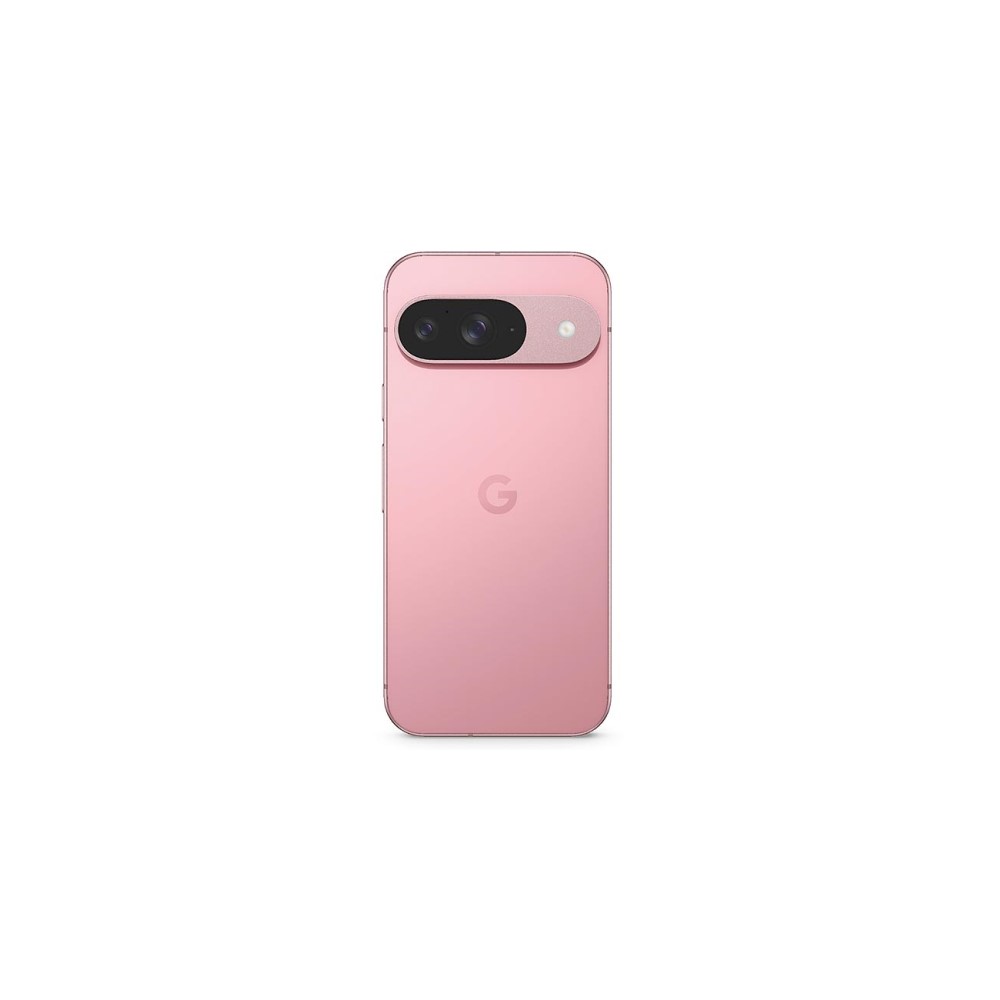
Google Pixel 9
Powerful Gemini AI tools
Excellent build quality, refined design
Extensive update policy
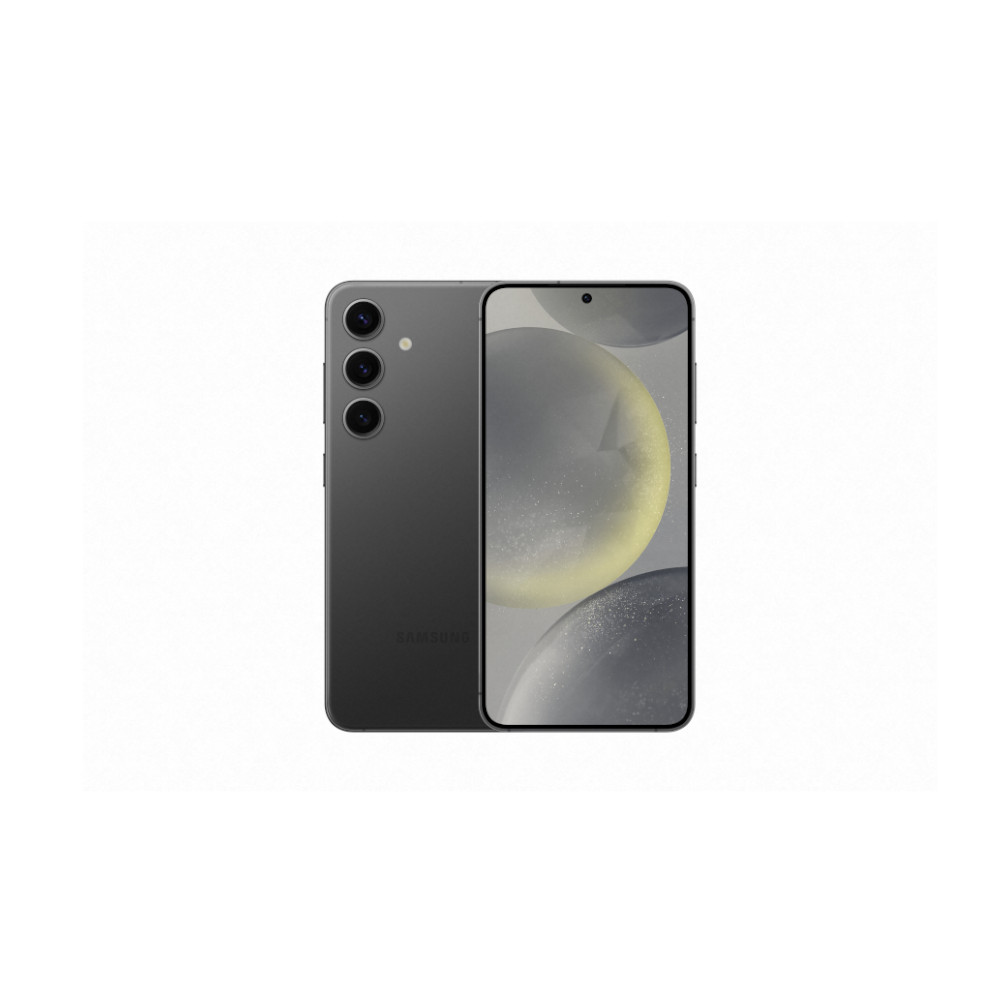
Samsung Galaxy S24
Seven-year update commitment
Neat AI features
Robust battery life



